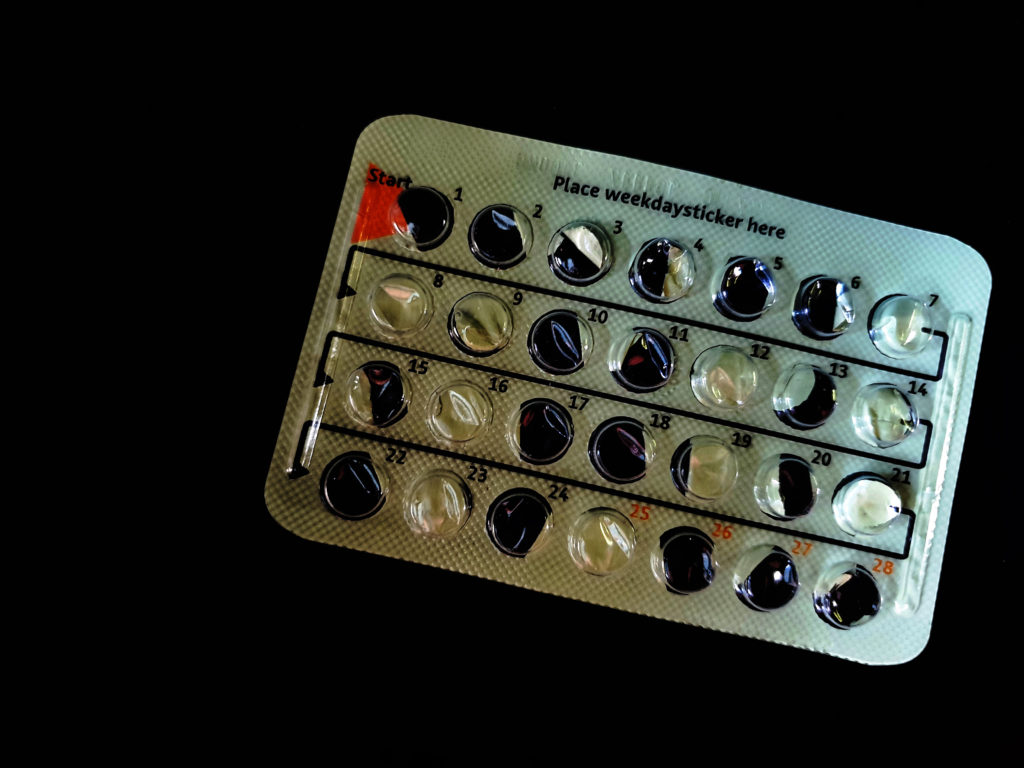TikTok recently deleted several videos outlining the harms of hormonal contraceptives, claiming that they portray “inaccurate, misleading, or false content that may cause significant harm to individuals or society.” The “false content” they censored pointed out that hormonal contraceptives can lead to weight gain, depression, anxiety, and infertility, as well as induce abortion.
A recent Washington Post article also dismissed these claims, arguing that advocates against hormonal birth control are either misled or are participating in a conservative ploy to control women’s rights.
TikTok’s move and The Washington Post’s defense indicate a growing nervousness among advocates of the pill. In recent months, there have been indicators that a new generation of women is rejecting the pill, not primarily on moral grounds, but on grounds of health. Even left-leaning feminist scholars have started to ask questions about how the pill has changed our views of what it means to be female, the value of motherhood, and what kinds of health outcomes we are willing to sacrifice for consequence-free sex.
In the battle for “reproductive freedom” and the “right” to kill our children, many are willing to turn a blind eye to the documented harms of hormonal contraceptives. But they are real, and a new generation is taking notice.
The first birth control pills were pushed by Margaret Sanger in an effort to eliminate people who were poor, had mental illnesses or were living with disabilities. The first contraceptives were tested on women in Puerto Rico whose poverty and lack of education made them “unfit.” Their complaints about the side effects — including nausea, depression, and blood clots — were dismissed as unreliable. Three women died during the trials; no autopsies were performed.
The harmful side effects of hormonal contraceptives have only increased over time. In the past few years, there have been several stories of women who developed and died from blood clots linked to their use. Among the deceased are a 16-year-old girl who was taking pills to alleviate painful periods, a 17-year-old ballerina, a 20-year-old college student, and a 24-year-old makeup artist.
A recent review conducted by researchers with the Catholic Medical Association found that “...using HC increases a woman’s risk of being diagnosed with VTE (venous thromboembolism) by three to nine times. For women under 30, the risk is increased 13-fold during the first year of use, when the risk for clot formation is highest.” The study also found that “...the risk of fatal VTE was increased in women aged fifteen to twenty-four by 18.8-fold.” The review concluded with the following: approximately 300-400 healthy young women die in the United States every year from hormonal contraceptives.

Another study conducted on women between 15-33 found that hormonal contraceptives were “positively associated with a first suicide attempt, as compared with never-users,” and the highest relative risks were experienced by adolescents. This increased risk may be due to the link between hormonal contraceptives and depression, as well as other issues, such as anxiety, related to abnormal fluctuation in users.
In natural menstrual cycles, the fluctuations of estrogen and progesterone help to maintain healthy emotional regulation. The ventromedial prefrontal cortex, the part of the brain that is responsible for decision-making, emotional regulation, and memory, works together with the parts of the brain that process fear. Synthetic hormones alter that process.
The thickness of the vmPFC tissue correlates with one’s ability to handle generalized fear, mental and emotional resilience, and the ability to stay calm. In one study, women using hormonal contraceptives were found to have thinner vmPFCs, increasing their susceptibility to chronic anxiety and greater overall fearfulness.
If blood clot and suicide risks weren’t alarming enough, hormonal contraceptives are also linked to infertility. Studies have shown that taking oral contraceptives for more than two years before pregnancy can increase the risk of miscarriage, especially for women who are 30-34 years old. This might be due to the fact that oral contraceptives cause endometrial atrophy, or the thinning of the lining of the uterus, when taken for long periods of time. Research indicates that this atrophy can “modify some local factors in the endometrium and increase the risk of miscarriage.”
In addition, long-term use can result in decreased cervical fluid, which is necessary for conception. Hormonal contraceptives can actually prematurely age the cervix by decreasing the cervical crypts and prematurely age the ovaries, leading to a decrease in ovarian reserve.
Finally, while The Washington Post claimed that hormonal contraception does not cause abortions (their argument being that the term “abortion” applies only to embryos that have implanted), contraceptive pills can stop embryos from implanting in the uterus in the first place. One can make a clinical distinction between these two scenarios, but if the science of embryonic life tells us that it begins at fertilization, the end results are the same.
Even a cursory glance at the facts vindicates those advocating against hormonal birth control. They are neither misguided nor fearful, and they should definitely not be censored.
For thousands of years, doctors and physicians have taken an oath to “do no harm.” It’s high time for us to do away with hormonal contraceptives so that we can have a more serious and robust discussion about how to regulate birth in a way that’s best for women.

